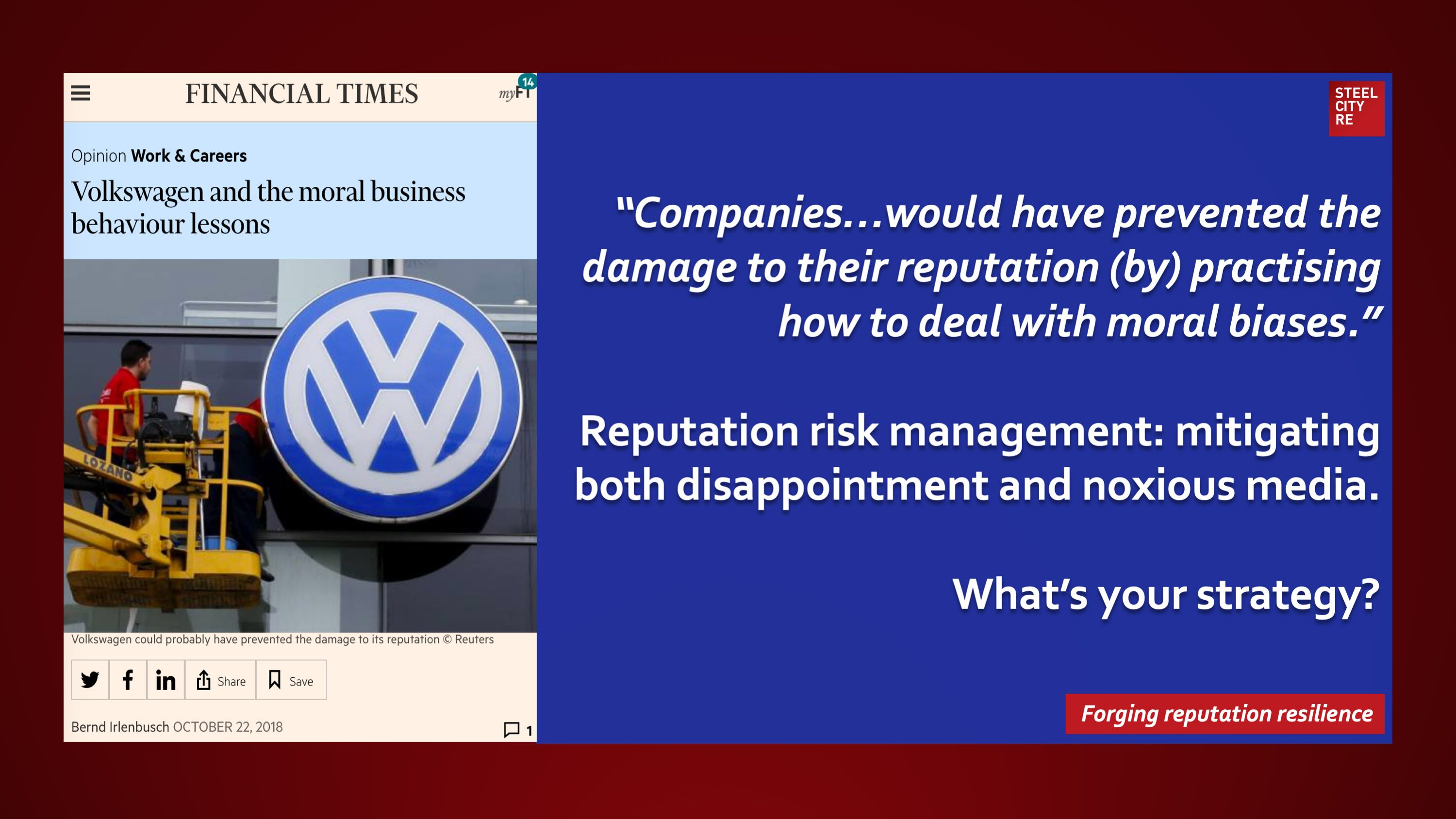Financial Times
October 24, 2018
Reputation risk is the peril of stakeholders’ disappointment and anger.
“People are not as rational as they like to believe…intuition, emotions and biases are essential to understand moral conduct.”
“Companies…would have prevented the damage to their reputation (by) practising how to deal with moral biases.”
Reputation risk management: mitigating both disappointment and noxious media.
Reputations are valuable strategic intangible assets. Threats to these assets⏤ enterprise reputation risks, often mislabeled “brand risks” ⏤ need to be managed, and management needs to be overseen through reputation risk governance lest reputational damage or reputational harm result in long-tailed go-forward losses in economic value and/or political power. Because these intangible risks arise from the interplay of stakeholder expectation, experiences, and media amplification, parametric insurances for intangible asset risks, for reputational value, for reputational harm, and for reputation assurance help mitigate risk by telling a simple, convincing and completely credible story of quality reputation governance to stakeholders. This story telling effect is the expressive power of insurance complementing insurance’s better known instrumental power of indemnification.
Risk management, risk financing in insurance captives, and risk transfer through reputation insurances comprise the constituent elements of a comprehensive solution. What’s your strategy?

